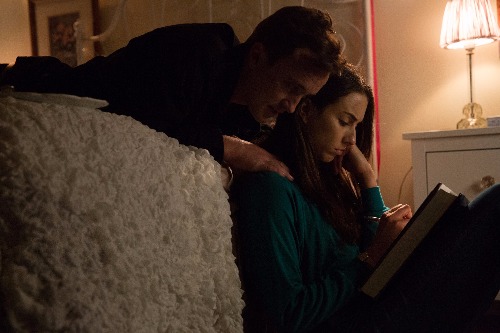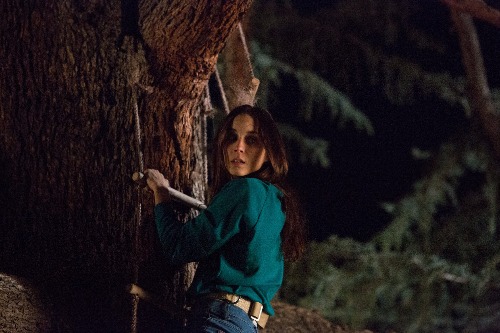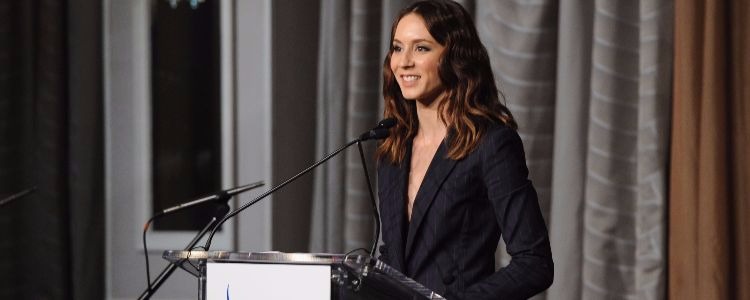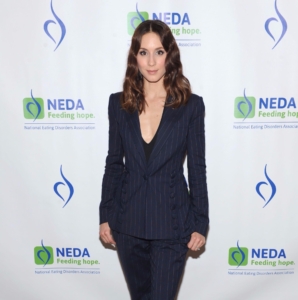A Dark Ride – On Writing What I Know
Those who know me well know that I’m naturally drawn to the dark. My mind always goes to the worst case scenario. My first thought after a positive thing happens in my life is: great, but when is the other shoe going to drop? You might say that I’m a pessimist, or cynical (my mother often does) but, honestly, I try to be positive about things. Maybe it’s that I believe preparing for the worst always leaves you to be wonderfully surprised by the median outcome, rather than being disappointed or shocked when things don’t go your way.
So, needless to say, when I thought about writing my first feature, I knew it wasn’t about to be a tale of fairy delight and unicorn triumph. I knew that if the adage “write what you know” was going be my foray into screenwriting, well, things were about to get…dark. And even though at that point in my life I had a bounty of wonderful things, I was still grappling with the darkness. Because, even though I had some bright, shiny headlines in the newspaper of my life, I was still wrestling with one big-ass demon. No matter how many good things came my way, I had one strong and loud voice inside of me ready to tell me everything that was wrong and horrible in spite of them. This voice was the voice of my disease.
At this point, I almost feel like I need to apologize, because sometimes it feels like I’ve told this story so often that it has become a paint by numbers.
Number 1) YELLOW. In high school, I had lost such a significant amount of weight that my parents finally forced me to see a doctor who diagnosed my anorexia nervosa. Everyone in my life told me that I needed to eat in order to survive, but I still couldn’t bring myself to do it.
Number 2) ORANGE. I couldn’t convince myself that losing my life was scary enough, but somehow not going to college when all of my friends were did the trick (teen logic, go figure) So, I put on weight to appease my parents and doctors and went on to my freshman year.
Number 3) RED. During the first few months of school, away from home and unsupervised, I let my disease take the wheel of my fate. I lost enough weight that school sent me back to Los Angeles and my family hospitalized me.
Number 4) BLUE. While all my friends were having their coveted college experiences, I was monitored while using the bathroom. I had a prescribed meal plan to make me gain weight. Every day was group, individual, and family therapy. I thought I was at rock bottom, the end of my life, a failure, but, actually, I was just at the beginning. Finally, I was able to get the treatment I needed and face my disease head on.
Number 5) GREEN. I started walking the long road to recovery that led me to my life today. Boom, the colors are all there, what a beautiful picture, pin it up on the refrigerator, all done…sort of.

Even though that story, which to me, a decade later, after my experience of four years of theatre school and seven years of a successful television series, is just one part of my identity, a fraction of the history that makes me, me. That story is not the whole story of my relationship with my eating disorder.
And that story is also NOT common. That is not how it automatically goes for many other people. Everyone’s story is different and everyone’s story matters. One of the main reasons my disease was taken seriously was because of the extreme way my body looked: frail, skinny, sickly. But, whether we realize it or not, we all know someone who is struggling with a disordered relationship with food.
Yet how many of those people do you think are ever confronted? How many of those people’s pain is ever taken seriously enough to be put in the same room with a doctor? How many people are ignored because they don’t “look” like they have an eating disorder or don’t ask for help because the stigma is overwhelming? How many people end up suffering in silence because of misinformation and a lack of resources?
Eating disorders are the deadliest of all the mental illnesses—people are dying at an alarming rate. Yes, dying. This disease is a killer, and an incredibly effective one at that. On top of that, they affect a ton of people. 10 million men and 20 million women will struggle with an eating disorder at some point in their lives in the US alone. People of all genders, ethnicities, ages, and backgrounds suffer from eating disorders, but most don’t get the help they need because their illnesses are hidden in the shadows. Even when people come forward looking for help, treatment can be prohibitively expensive or non-existent in their area, and funding for research into effective treatments is sparse.
But here I was, one of the Recovered (read: lucky) ones, one of the people who had people who cared notice my illness and take action, someone who had access to treatment and was able to get healthy and continue on with my life. So, when I sat down to write “what I know”…guess what was the first story I wanted to tell?
My illness still loomed large in my head, but now I had the treatment to move through life in a healthier way. I began to work as an actor, and as my television show gained more momentum and notoriety, I saw that I could get away with hiding my struggles in the idea of an unblemished past. I could tell my fans that, sure, high school was hard, but nothing major happened, just look at this glossy photo of me in hair and makeup, don’t I look almost perfect?
I could keep up the facade that I was of one of the shiny people, only put out photos of me smiling on Instagram, having fun on set, leading a charmed life; but why? Why pretend I don’t still hear my disease every day, when I know there are those out there still struggling who might not have access to the support I did to make hearing it but not acting on it okay? So, I wanted to write a film that opens up the conversation about eating disorders and tells the people who are listening to that horrible voice in their head that it’s not the way their life has to be.
And for the people who think that eating disorders are just about being skinny, or a choice? For people who don’t think they are a serious problem? I wanted to put those people inside one experience of an eating disorder and have it scare the hell out of them. I wanted to convey how uncomfortable it was, not only for me, but for my family and friends, too. I wanted them to understand that eating disorders aren’t about vanity—they’re rooted in pain and a sense of hopelessness and, as you see in the film, often tied to trauma.

I think there will be a lot of people who will not see Feed as a film about an eating disorder, and I am proud of that. They will see it as a film about a girl who is haunted, they will see it as supernatural thriller about the horror of guilt. There will also be people who will not understand why I made this story so dark or disturbing when speaking about something as serious as mental illness. But to me this disease is scary. To me this disease is a life-threatening force that makes you to struggle with the darkest parts of yourself.
I would never want to trigger someone’s eating disorder or create more of a challenge in someone’s journey and recovery. In my experience, recovery isn’t a rainbow-covered walk down a rose path, but I do know hope is real. Feed is meant to be a dark ride, and just the beginning of what I think is a very important conversation—a conversation that will hopefully lead to more people getting the help they deserve.
Don’t get me wrong, I think it can be immensely powerful to shine a light into the dark, but maybe it can be just as powerful to walk into it and let your eyes adjust. That, to me, is how we find our own way out.
If you’re looking for help to get out of your personal darkness, here are some resources that can help:
- Online eating disorders screening can help you determine if it’s time to seek help.
- Our Helpline and Support page can provide you with a variety of resources and treatment options near you.
- For 24/7 crisis support, text ‘NEDA’ to 741741 or call/text 988.
- If you’re a parent or family member concerned about a loved one, the Parent Toolkit can be a great place to start.
- If you or someone you know is struggling with an eating disorder, call ANAD’s Helpline at: (888) 375-7767 or the National Alliance of Eating Disorders Helpline at: (866) 662-1235.
Blog header and thumbnail photos via Getty Images





